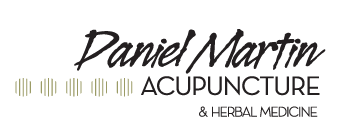Stress is often a major contributive factor to the myriad of conditions I treat in my clinic. I know a thing or two about stress, and I’m guessing you do too. Maybe you have to endure a long traffic-entombed commute everyday, or your landlord is constantly trying to raise your rent. Perhaps your parents are sick and you’ve been trying to help them in your precious free time, or your boss has unreasonable expectations of you at work . Whatever the reason for your stress, one thing is a safe bet: it’s having a negative impact on your general health.
Stress is a perfectly natural biological reaction to perceived threats or dangers. When we experience stress what we are feeling is our autonomic nervous system pumping stress hormones like adrenaline and cortisol into our blood. These chemicals cause an increase in heart rate and stronger contractions of the heart muscles. Blood vessels dilate, increasing both blood flow and pressure throughout the body, pushing blood to muscles quicker. Our breath comes faster, and small airways in the lungs open, allowing for a higher oxygen intake. Some of the extra oxygen is sent to the brain sharpening our sight and other senses. The liver releases stored glucose giving us a short burst of energy. This is the fight or flight response in action. While undoubtedly useful when faced with a legitimately dangerous situation, in modern life it causes more problems than it solves.
My relationship with stress first began in earnest when I was 22. Cesar Chavez of the United Farm Workers invited me to learn to become a union organizer, and I was quickly in over my head, being given roles and responsibilities well beyond what I thought I was capable of handling. I would work in the labor movement for the next 17 years of my life, fighting for employee rights in a variety of industries, particularly the healthcare field.
The stress of constantly battling exploitative employer practices had a very real effect on my personal health. I had chronic digestive problems, chronic back pain, high blood pressure, headaches, difficulty focusing,insomnia and a worsening of allergies. If you Google “stress “and click on the first link, you will see a list of symptoms almost identical to mine. My experience was hardly an isolated case, and I would be surprised if you aren’t familiar with at least one of these physical expressions of stress.
About 10 years into my Union career, my wife Judith introduced me to her Acupuncturist, and my life was changed forever. I can recall vividly that first appointment, and the incredible sense of peace and relaxation I felt after the needles went in. I had never felt so relaxed before. After a few months of treatment, a significant positive progression on a number of my major health concerns had been made.
I didn’t make any real changes to my work life or personal lifestyle at the time, but the seeds of long-term change had been planted. Over the next few years I would learn to further manage my stress using meditation, exercise, trips to nature, and a more conscious diet. Over and over on this journey I would return to acupuncture, for both long-term health management and for when I was just freaking out and needed some acute assistance.
These were the roots of what eventually led me to become an acupuncturist. Everyday now I see in my patients the negative effects of stress. I see young people with health problems they shouldn’t have to deal with for years to come. I see older people with mild health issues that become severely exacerbated by the stress of their daily lives. And I see the despair in those who do not believe that they have a way to combat this pain. I know first hand that it does not have to be this way. Acupuncture can be one significant step on the path to change how stress and anxiety affect our lives.
